What Does It Take For Female Journalists To Hold Public Officers Accountable?
No doubt, gender-based violence has dramatically moved online. While everybody uses the platforms to source for information and communicate, it is not well for Journalists who critic public officers.
So What Does It Take For Female Journalists To Hold Public Officers Accountable?
Writes Culton Scovia Nakamya
Online violence against women journalists is a growing global threat on press freedom and freedom of expression.
Ugandan US Based Journalist Remmy Bahati is a current victim of such violence, from a high ranking Ugandan public servant, Gen. Muhoozi Kainerugaba who is also a son to the president of Uganda Yoweri Museveni.
The 2022 “Chilling” study report of online violence against women journalists indicated that nearly three in four (73% ) women journalists experienced online violence.
One in five women (20%) reported experiencing offline attacks or abuses from incidents that seeded online. 26% suffered mental health effects, 12% sought for psychological support while 11% took days off duty to recover from the effects.
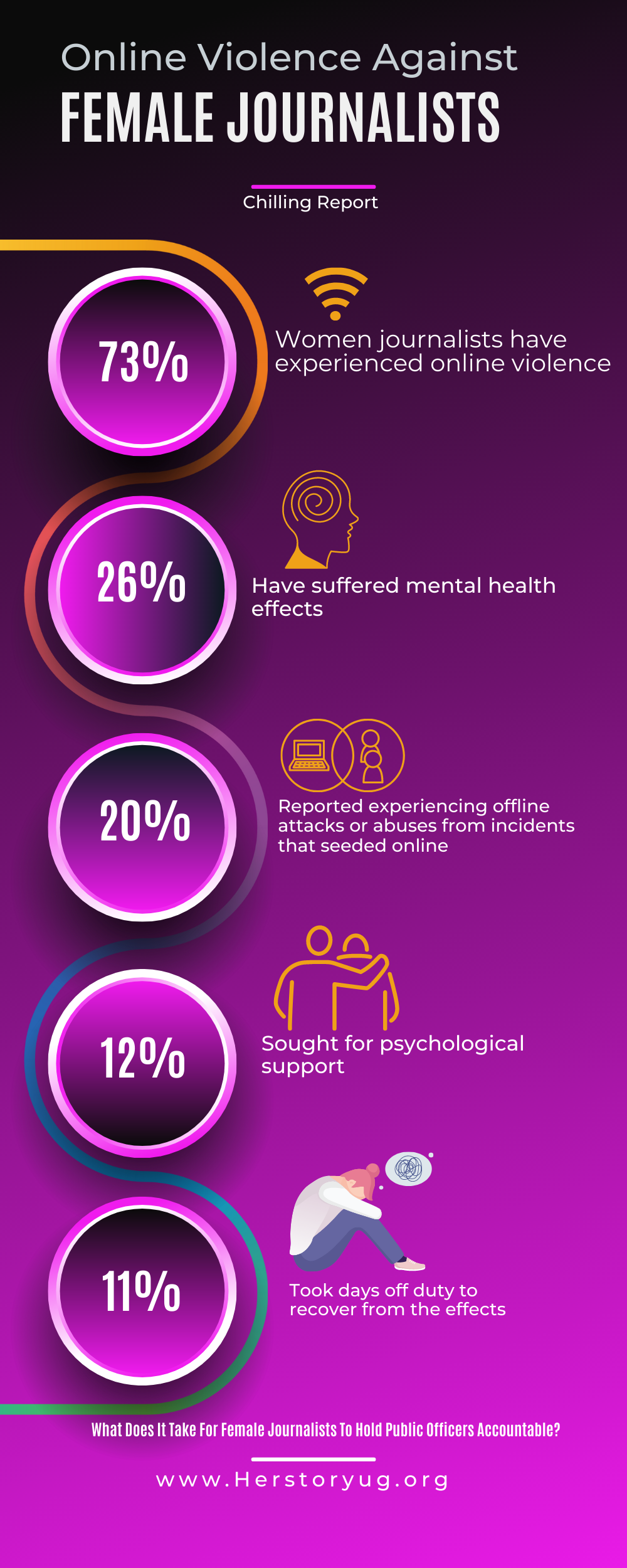
Online Violence Against Female Journalists
The report established that online violence was mainly orchestrated by political actors and their sympathisers, supporters.
Gen.Muhoozi has publicly announced intentions to stand for the presidency after his father Yoweri Museveni. He has used online platforms majorly Twitter to communicate to different audiences.
Early April, Gen Muhoozi put out a number of tweets about women and other opinions on different topics.
“Every day, people wake up to tweets from him that leave them shaking their heads, wondering how he managed to achieve such a level of cluelessness. It seems the more he tweets, the more he proves that he’s less than qualified to be able to understand even the simplest concepts in politics”. Reads part of Remmy Bahati’s tweet calling Gen.Muhoozi to order regarding his online conduct.
“I think she is jealous that NOBODY finds her attractive. Even tomorrow morning she`ll still be ugly. Some conditions are incurable”, tweeted Muhoozi responding to Bahati’s criticism
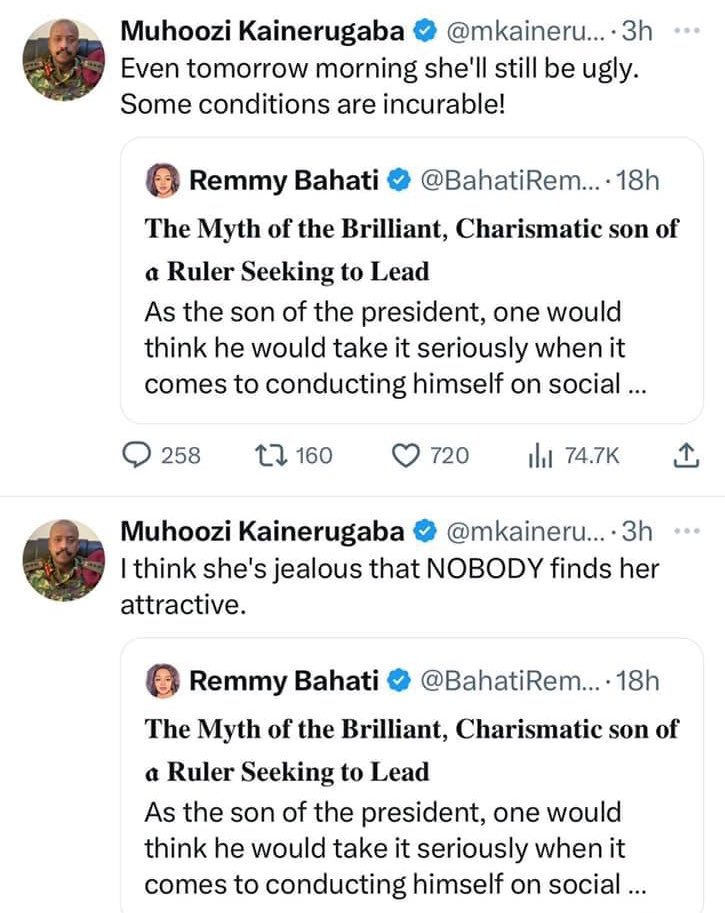
This attracted several other political actors including members of parliament and their supporters to abuse, belittle and threaten Bahati.
“I would advise that you to just keep quiet, otherwise we know alot about you. Don’t provoke us to remind you what you did during the UNAA conference in Chicago”. Responded Daudi Kabanda, member of parliament Kasambya county.
Bahati called on the MP to stop using blackmail and negative tactics as they are “not a good way to engage in political discourse”.
The member of parliament responded by tweeting “We don’t debate blackmailers like yourself who have sold their souls for the sake of justifying the fake reasons to support ur (your) asylum status”.
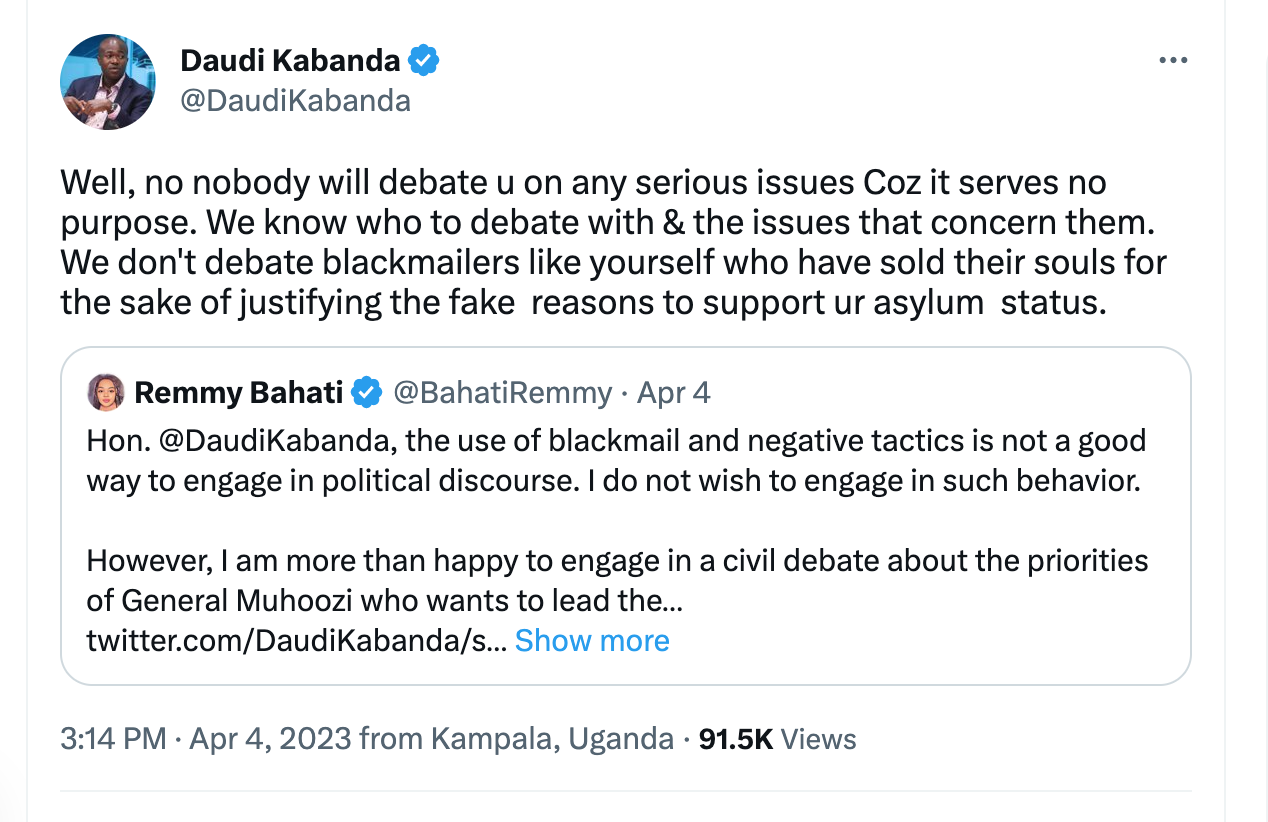
Many more other tweets followed.
Bahati says the online attacks have affected her emotionally and greatly “caused me a lot of stress, anxiety, and fear. It can be very hard to feel safe and secure online when you are constantly being attacked and threatened”.
Online platforms have put up measures through community standards to guide the conduct of users including their Language however, not much is done to safeguard women against online violence, exposing more women journalists to such threats.
Bahati says this cannot stop her from advocating for what she believes in.
“despite the emotional toll that online violence has taken on me, I am committed to speaking out against it and advocating for more protections for women online. I believe that it is important to not let these experiences silence us, but rather to use our voices to demand change and push for a safer and more equitable online space forever” she noted.
Remmy Bahati is not the first Ugandan Journalist to face this kind of abuse, by the same person. in 2022, NTV Uganda’s Olivia Komugisha experienced the same.
While there are laws and policies in place to address online violence against women, these protections are often insufficient, difficult to enforce, and fail to adequately address the structural and societal factors that underlie this problem.
Several human rights defenders have voiced concerns that online abuses potentially lead to physical harm and emotional damage. More efforts have been put towards creating awareness and impartiality in the implementation of laws regardless one’s caliber.
In Dec 2022, Women of Uganda Network and Makerere University School of Women and Gender Studies released a survey report indicating that online gender-based violence mostly occurs on Facebook (23%), followed by WhatsApp (21%), Twitter (18%), Instagram (14%), YouTube (10%) and Tiktok (6%).
The survivors reported psychological trauma (38%) and loss of confidence at (21%).
Sandra Aceng the Executive Director Women of Uganda Network says the online platforms needs to enforce their community standards Platforms.
To avoid physical harm as a result of online violence, Aceng recommends digital Security measures to women Journalists and other victims of online violence to safeguard themselves.
Bahati says addressing the challenge needs a collective effort.
“Ultimately, addressing online violence against women will require a multi-faceted approach that involves individuals, communities, governments, and other stakeholders working together to create safe, inclusive, and respectful online spaces for everyone” says Remmy Bahati.
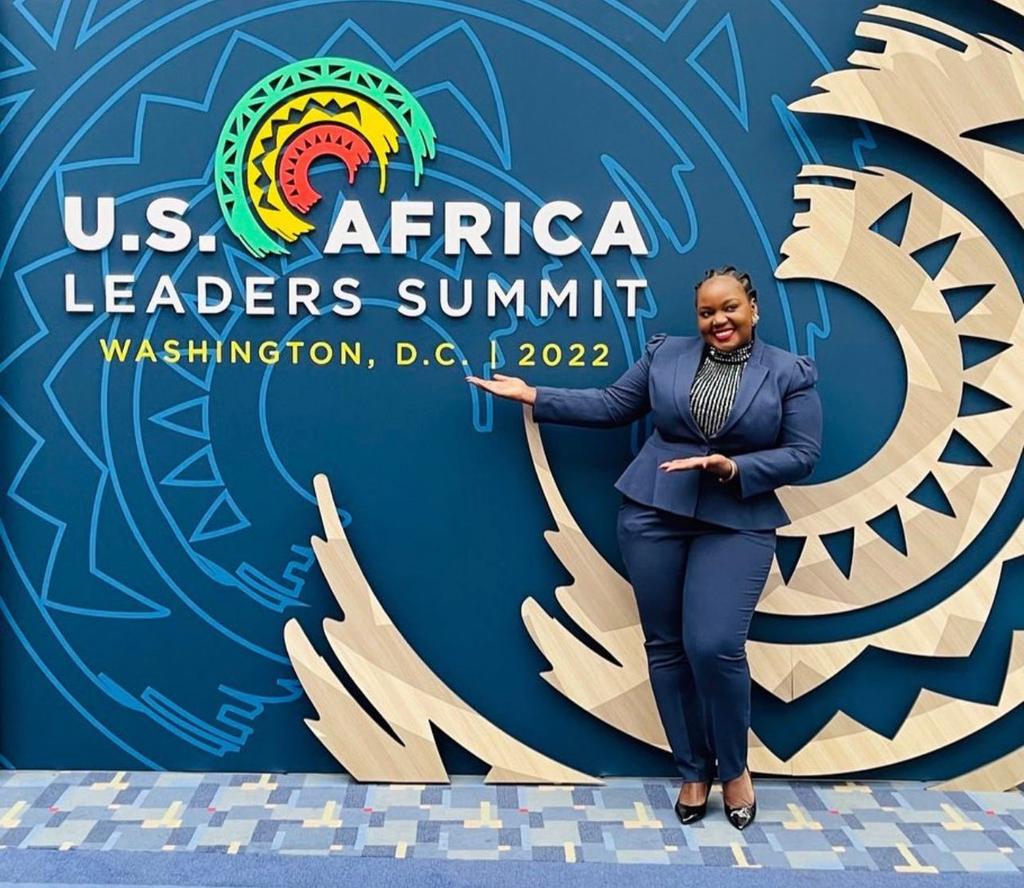

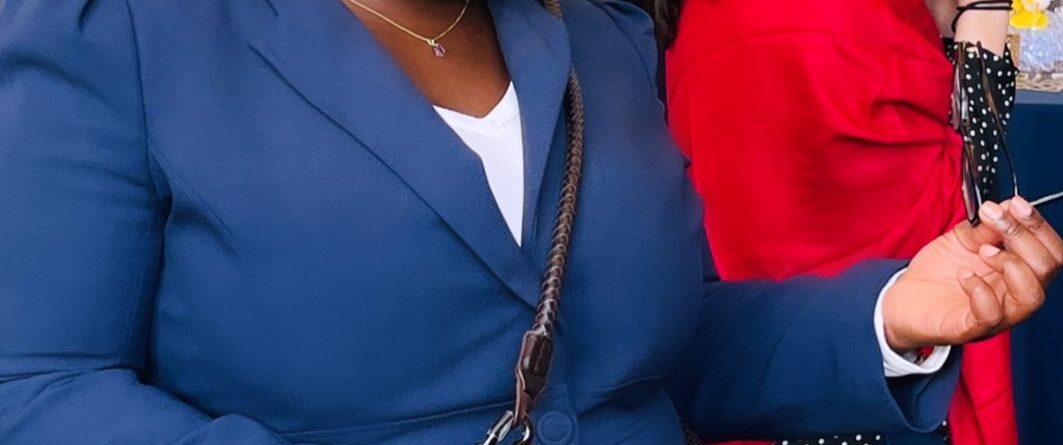
Comments (3)
But regardless of the violence we need to stand together as female journalists and fight this problem. I believe if we build confidence and stand to the truth we shall overcome all these.
Gender based violence against the female fraternity can well be addressed by the female journalists positioning themselves in positions where they ain’t vulnerable to being violently handled by whoever they come across
Integrity, Dignity and unbiased opinions are key in journalism.
In countries where there’s no respect for rule of law…Female Journalists may not escape this abuse and therefore they need to position themselves so that they ain’t prey to such brutality especially when reporting about issues involving the big wings.
Benchmarking in those who have advanced in civil space can as well equip them with knowledge on how based they can navigate through the brutal and cruel places of work..
Thank you Culton Scovia for the great work
God bless you
Happy Easter
Politics and journalism is a two way traffic, but there is an incline on other hand. It’s only the brave and genius can understand it.